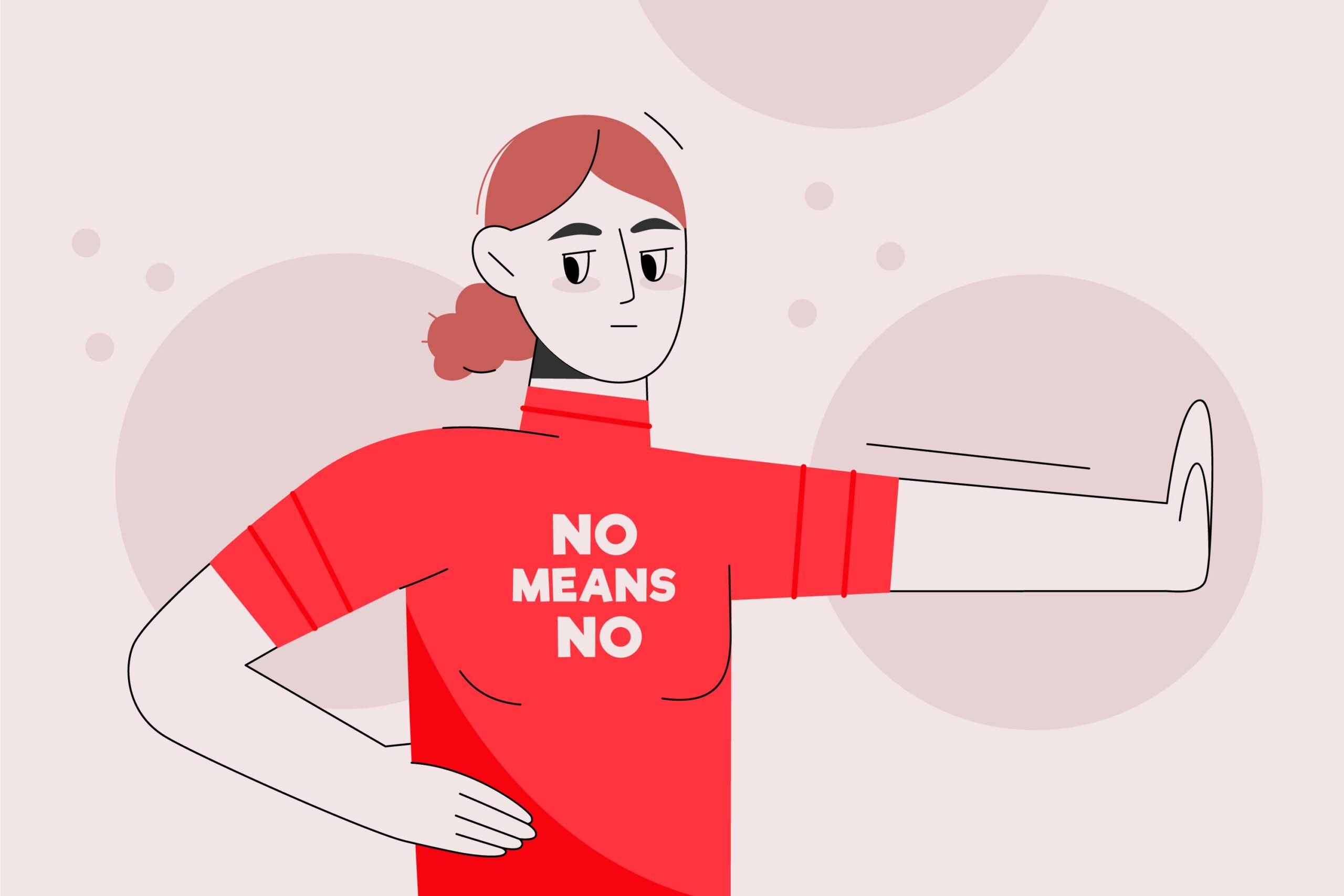Why Setting Limits is Essential for Healthy Relationships

In any relationship—whether personal, romantic, or professional—clear and respectful boundaries are crucial for maintaining your emotional well-being and ensuring that interactions are mutually supportive. However, many people struggle with setting boundaries, either because they fear rejection, feel guilty, or are unsure of how to assert their needs.
What Are Boundaries?
Boundaries are the emotional, physical, and mental limits we set to protect our well-being and define how others can interact with us. Think of boundaries as an invisible line that separates your personal needs, values, and space from others. They communicate how close someone can get emotionally or physically and what behaviors are acceptable.
Types of boundaries:
- Physical Boundaries: These relate to personal space and physical touch
- “I don’t feel comfortable with hugging strangers”
- Emotional Boundaries: These protect your feelings and emotional energy
- “I can’t listen to this right now; it’s too overwhelming for me”
- Time Boundaries: These relate to how you manage your time and availability
- “I need 30 minutes of alone time after work before I can talk”
- Material Boundaries: These involve your possessions or finances
- “I don’t lend out my car”
- Mental Boundaries: These relate to your thoughts and opinions
- “I respect your views, but I have a different perspective”

“Daring to set boundaries is about having the courage to love ourselves, even when we risk disappointing others”
Brené Brown
Why Are Boundaries Important?
Without clear boundaries, you may feel overwhelmed, resentful, or taken advantage of. Conversely, setting and maintaining boundaries can:
- Preserve your energy: By setting limits, you ensure you don’t overextend yourself.
- Promote respect: Boundaries foster mutual respect in relationships, ensuring that everyone’s needs are acknowledged.
- Reduce resentment: Boundaries help prevent feelings of frustration or resentment from building up when your needs are ignored.
- Strengthen self-awareness: When you know your limits, you are more in tune with what you need for your own well-being.
Boundaries as Self-Care
Setting boundaries isn’t just about saying “no” to others—it’s about saying “yes” to yourself. When you set a boundary, you’re protecting your energy, time, and mental well-being. Think of it as creating a safe space around yourself, where your emotional and physical needs are respected. In this way, boundary setting is a key component of self-care, helping you maintain balance and reduce burnout.
Sarah is always saying “yes” when her coworkers ask her for help, even when it disrupts her own tasks. After feeling stressed and overwhelmed, she realizes she needs to set a boundary to protect her time and productivity. Sarah decides to communicate that she’s happy to help during her breaks but will need to focus on her work during regular hours. By setting this limit, Sarah honors her need for focused time, reducing stress and fostering better relationships with her coworkers.
Boundaries and Self-Worth
Boundaries aren’t just about managing external relationships; they’re about how you see yourself. When you set clear, healthy boundaries, you’re sending yourself a powerful message: I am worthy of respect. Over time, maintaining boundaries can improve self-esteem because you’re constantly affirming your right to have your needs and feelings honored.
Common Challenges in Setting Boundaries
For many, setting boundaries can feel intimidating. You might worry that saying “no” will lead to conflict, guilt, or rejection. Here are a few common reasons people struggle with boundaries:
- Fear of Rejection: You may feel that others won’t like or accept you if you assert your needs.
- Guilt: You may worry that by setting a boundary, you’re being selfish or hurting someone’s feelings.
- Unclear Boundaries in the Past: If you grew up in an environment where boundaries were blurred or disrespected, it may be difficult to know where to start.
- People-Pleasing Tendencies: You might prioritize others’ needs above your own, leading to burnout and resentment.
How to Set Healthy Boundaries
- Identify Your Limits:
- Take time to reflect on where you feel uncomfortable, overwhelmed, or taken for granted. These are areas where boundaries might need to be set.
- Communicate Clearly and Assertively:
- When setting a boundary, it’s important to be clear and assertive, but also kind. Use “I” statements to express how you feel (e.g., “I need time to recharge after work before socializing”). Avoid blaming or accusing language, as this can create defensiveness.
- Start Small:
- If setting boundaries is new to you, start with small, manageable limits. Over time, as you become more comfortable asserting your needs, you can establish firmer boundaries.
- Stay Consistent:
- Once you’ve set a boundary, stick to it. Inconsistent boundaries can lead to confusion and send the message that your limits are flexible.
- Prepare for Pushback:
- It’s normal for people to resist when you first set a boundary, especially if they’ve been accustomed to you being more accommodating. However, this pushback doesn’t mean you should give in. Stand firm and remind yourself that maintaining boundaries is an act of self-care.

“No is a complete sentence.”
Anne Lamott
Boundaries and Cultural Considerations
It’s also important to recognize that boundaries can look different depending on cultural backgrounds. In some cultures, saying “no” may be seen as disrespectful, or personal space may be less of a priority. If you feel conflicted about setting boundaries due to cultural expectations, it’s worth exploring this in therapy to find a balance that respects both your background and your individual needs.
In Mei’s culture, it’s common for family members to drop by unannounced, which has always made her feel stressed. While she loves her family, she values her privacy. Mei decides to have a conversation with them, explaining that while she appreciates their visits, she would prefer if they let her know ahead of time. This way, Mei can maintain her boundaries without disrespecting her cultural values.
Boundaries and Mental Health
In therapy, we often talk about the relationship between boundaries and mental health. Lack of boundaries can lead to feelings of overwhelm, burnout, and resentment, all of which can contribute to mental health challenges like anxiety or depression. On the other hand, healthy boundaries promote better self-esteem, emotional resilience, and a greater sense of control in your life.
If you struggle with setting boundaries, this is something we can explore together in therapy. Through our work, we can identify the barriers that make boundary setting difficult and develop strategies to assert your needs in ways that feel authentic and empowering.
Further Reading:
- “Set Boundaries, Find Peace” by Nedra Glover Tawwab



